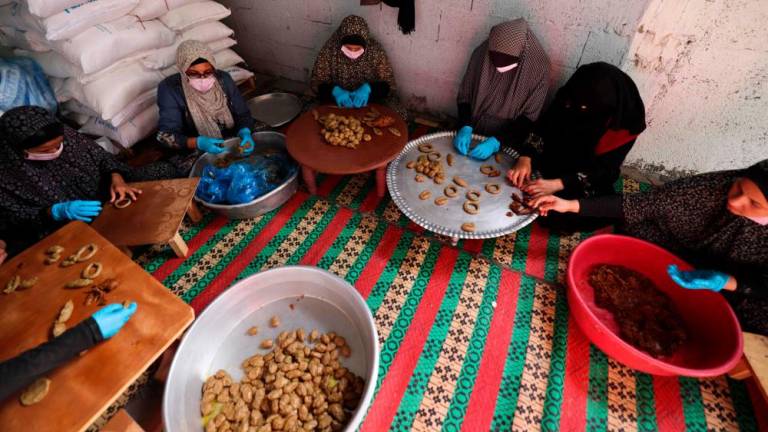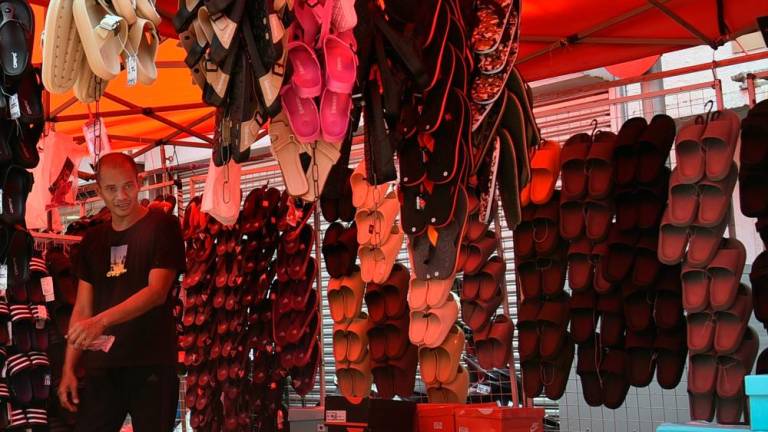KUALA LUMPUR: The Covid-19 pandemic has led to a number of businesses particularly small and medium enterprises (SMEs) to shut down as they struggled with cash-flow issues, although some have survived the ordeal as the government and financial sector have thrown them various lifelines to help them tide through the challenging times.
However, many small businesses and micro-enterprises especially in sectors such as food and beverage, hygiene and safety products and hobby-related activities such as baking have thrived.
Most of them are the ones who were bold enough to take the opportunities during the global crisis, at the same time, creatively adapting to the current situations by providing lots of products and services to help the people manage their daily lives especially during the implementation of the Movement Control Order (MCO) from March 18.
They switched to e-commerce fast and completely flipped the scenario to their advantage.
Malaysians, in general, are also conscious about their health and personal safety as data showed that products from the healthcare and wellness category saw booming sales during the period.
KBeautyOriginal Sdn Bhd assistant director Aini Wardiah Md Wazilah said that during the MCO implementation of the first wave, the company received a spike in demand, making decent profits with double to triple the return of investment, from March up until May this year.
With many non-essential businesses facing restrictions during the lockdown and most people staying home to keep themselves safe, Malaysians resort to making their purchases via online retailers.
“Before the MCO, our sales were around RM120,000 per month. However, since the MCO began, our sales had gone up to RM250,000 to RM400,000 per month,” she told Bernama.
The adaptation to e-commerce, she said, is helping the business to run well without hassle or restrictions especially during the MCO. The company focused on e-commerce to attract customers who were looking for beauty and healthcare products while spending their time at home.
However, after the government introduced the Recovery MCO and Conditional MCO, its sales in July dropped to RM150,000 from RM180,000 per month.
For information technology analyst, Liyana Ramli, 35, she found herself with a lot of free time which she felt could be used to focus on getting extra income even before the pandemic hit.
Being a part-time entrepreneur, she took the opportunity to make a fortune by selling a unique door gift and mini ‘sejadah’ or prayer mat — gifts for any event.
She was making a decent profit when there was a spike in demand starting from the implementation of the MCO when she received thousands of orders.
“I started this door gift business towards the end of 2017 and received a sudden surge in demand during the MCO up until the Recovery MCO with more than RM70,000 profit per month.
“My customers bought the mini sejadah for wedding ceremonies before the pandemic hit us. Although they can’t hold the ceremony during the MCO, they can still keep them,” she told Bernama.
After much research on how to market her products online, Liyana started to offer her products online via Facebook, Instagram and Shoppe named @doorgiftmurah_2018, in the hope of going beyond traditional marketing.
“My return on investment is giving me a big smile. This is what people always say, e-commerce gives extra miles in our life. And right now, my products have reached Sabah and Sarawak, as well as Brunei,” she said.
Other businesses that sell mask extenders, hand sanitisers, health products and those in the food delivery services are also profiting as a result of a shift in consumer needs during the crisis.
Meanwhile, according to a Commerce.Asia Enterprise study, since the coronavirus outbreak and MCO, many households are now opting for the convenience of online shopping.
Commerce.Asia general manager Aaliyah Soraya said the study showed that e-commerce transactions soared by 1,380 percent in August 2020 compared with a year ago.
Since then, the e-commerce platform has emerged as among the businesses that thrive, as customers are moving from traditional shopping or offline shopping to online shopping.
The study showed Malaysians spent some 70 percent more time on social media platforms such as Facebook, WhatsApp and Instagram during the period, compared to the pre-MCO period.
The data also showed the number of Instagram and Facebook Live views doubled in the first week of the MCO.
“This trend of continuous participation on social media platforms appears to be progressively increasing, and also accentuated by on-demand content videos coupled with live streaming of events,” she said.
As of September 2020, a total of 140,883 SMEs have participated in e-commerce platforms compared with 42,620 SMEs in 2019.
Entrepreneur Development and Cooperatives Minister Datuk Seri Dr Wan Junaidi Tuanku Jaafar said through the implementation of the National e-Commerce Strategic Roadmap aimed at accelerating the implementation of e-commerce among entrepreneurs, there had been a significant increase in the participation of SMEs in e-commerce.
A total of 85,901 online companies and businesses had been registered up to September 30 this year compared to 76,443 online companies and businesses registered for the whole of 2019.
The highest number of registrations was in July 2020 which involved 17,254 online companies and businesses,“ he added. — Bernama













